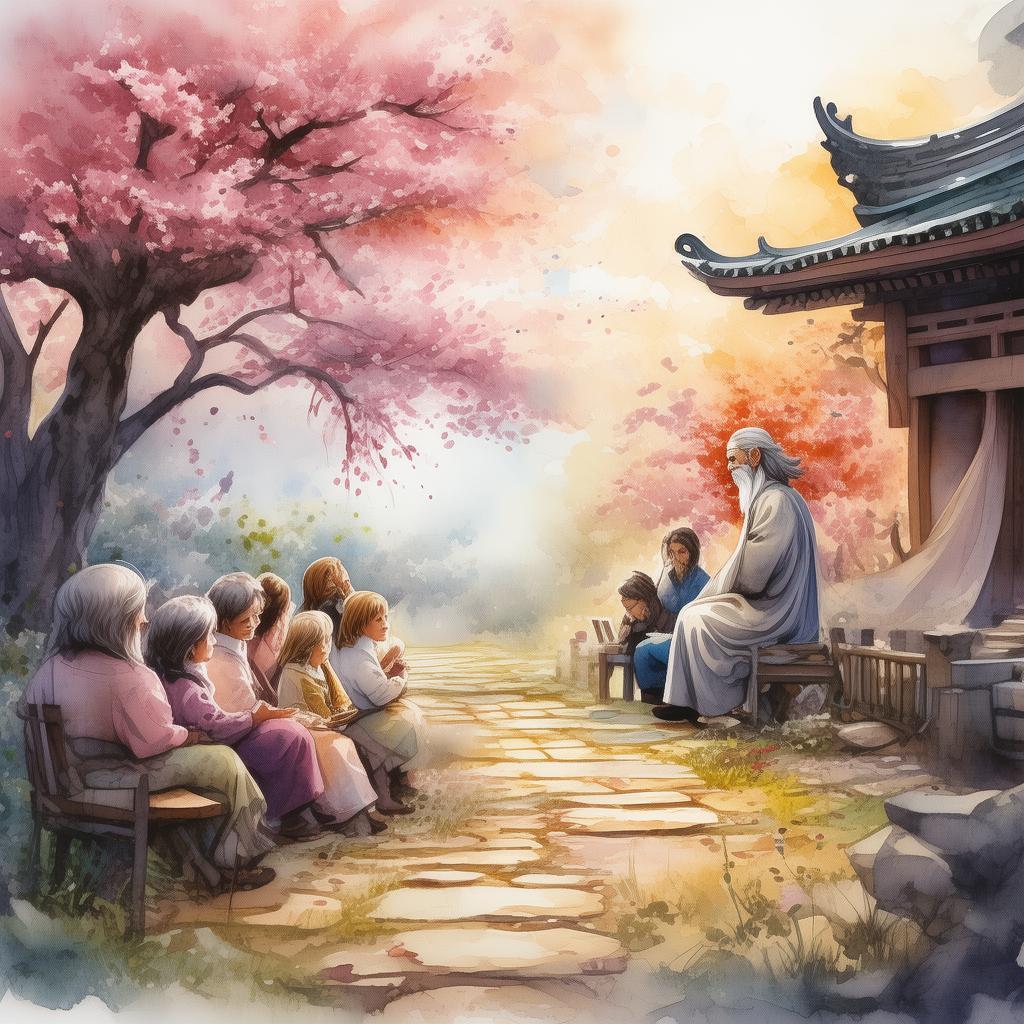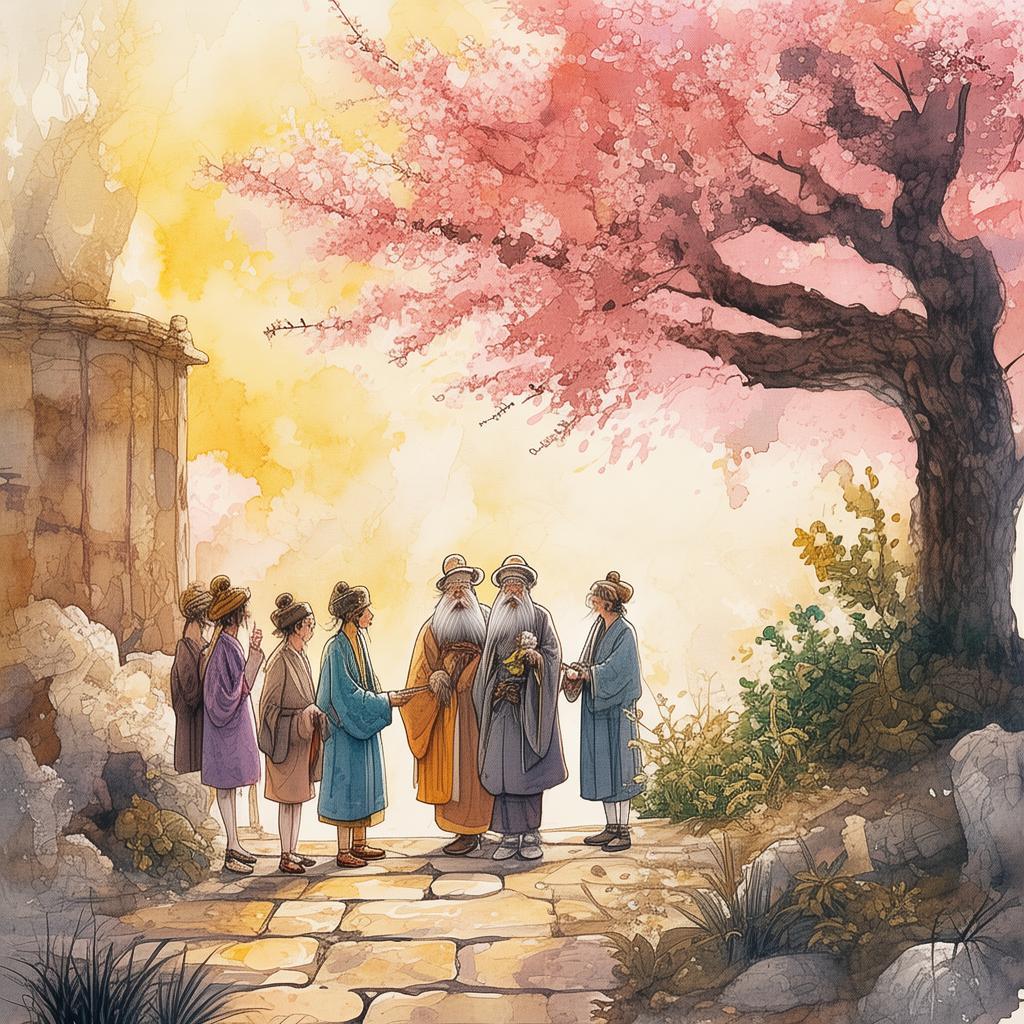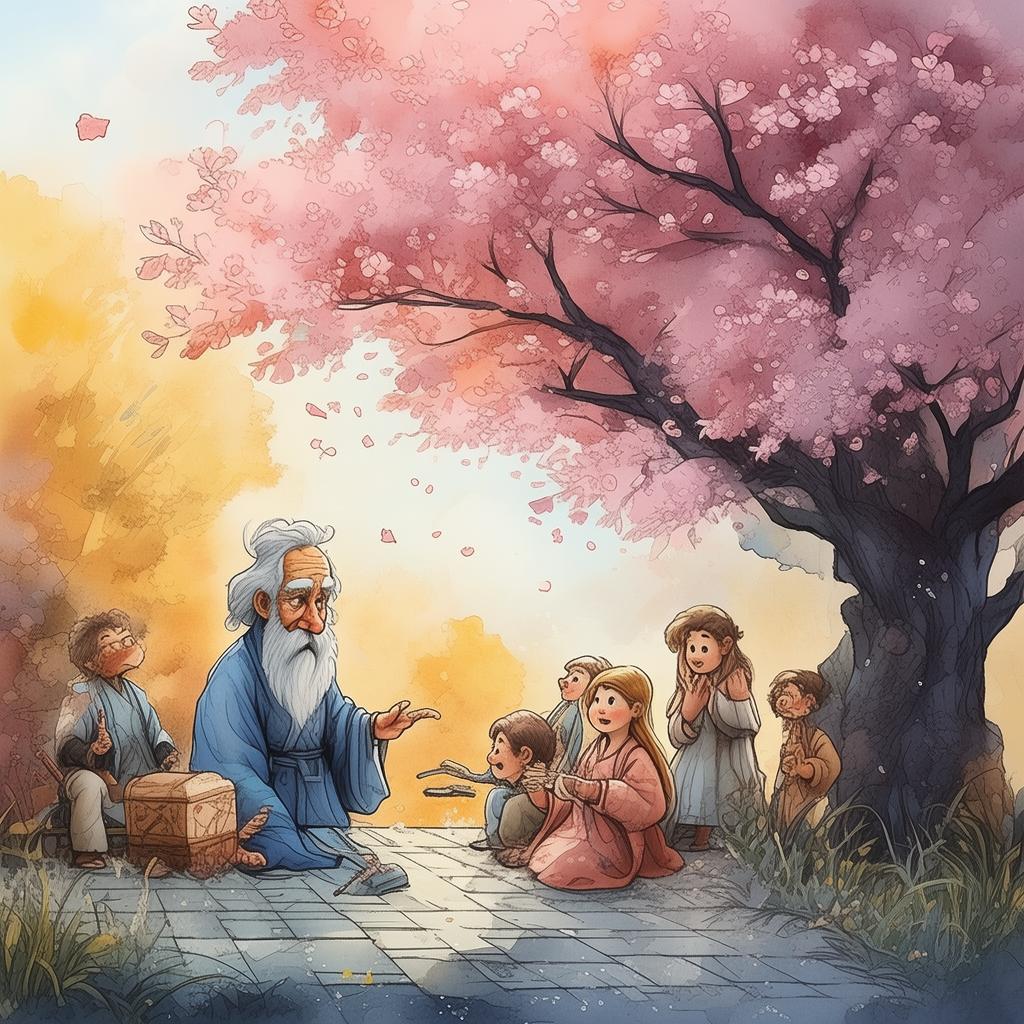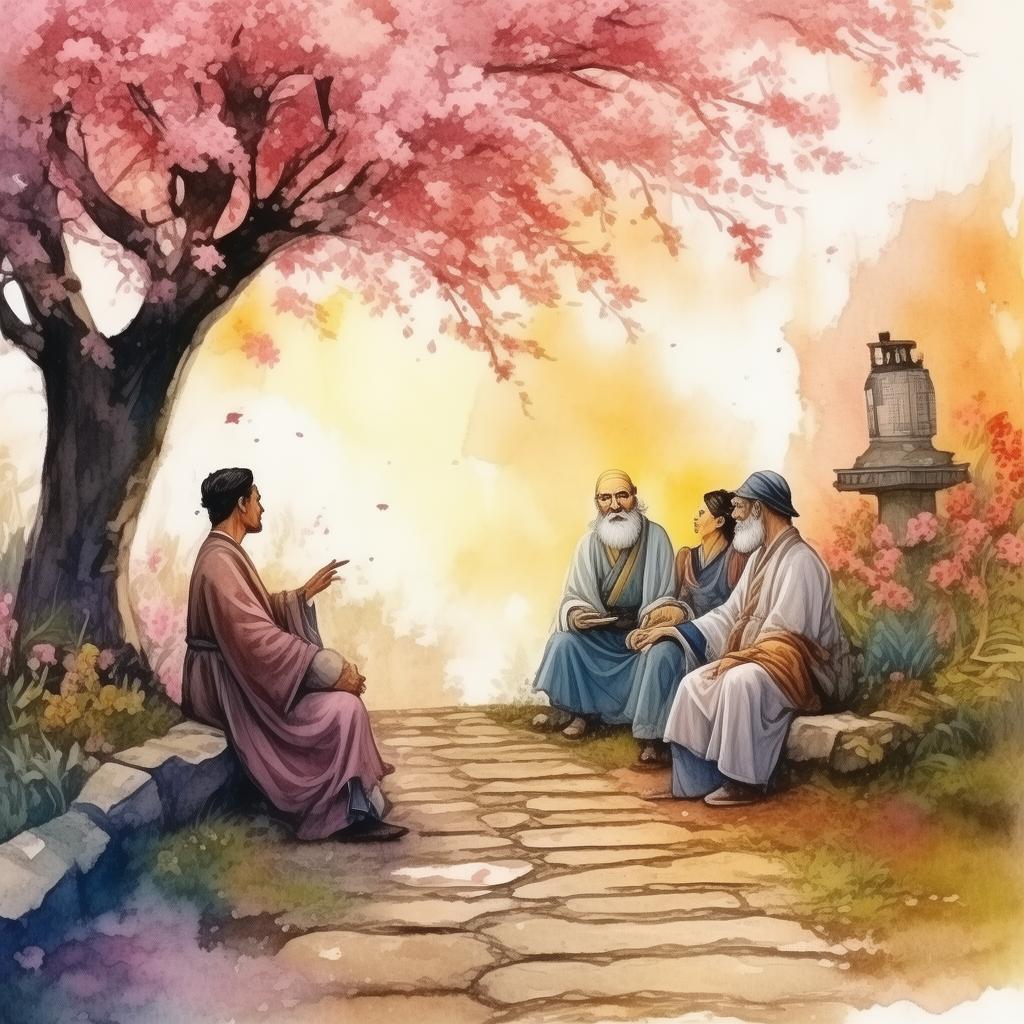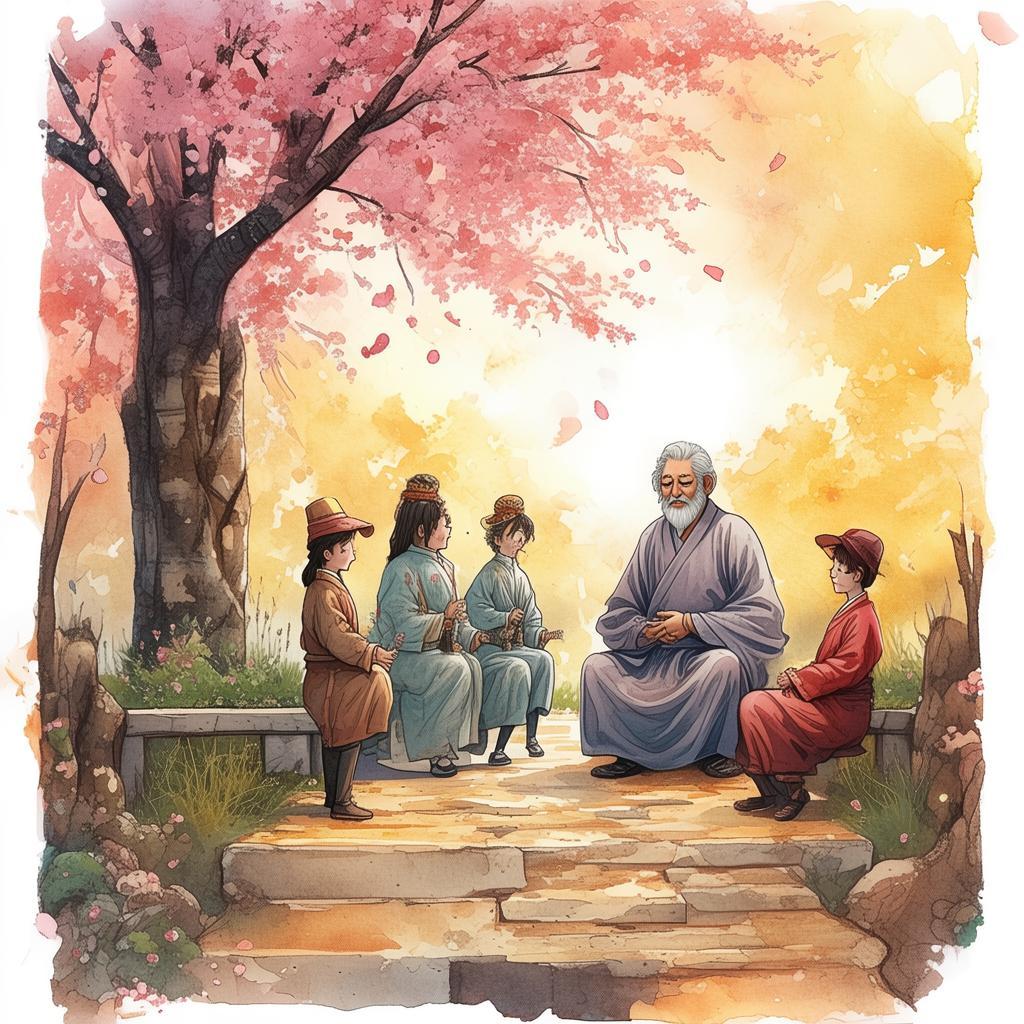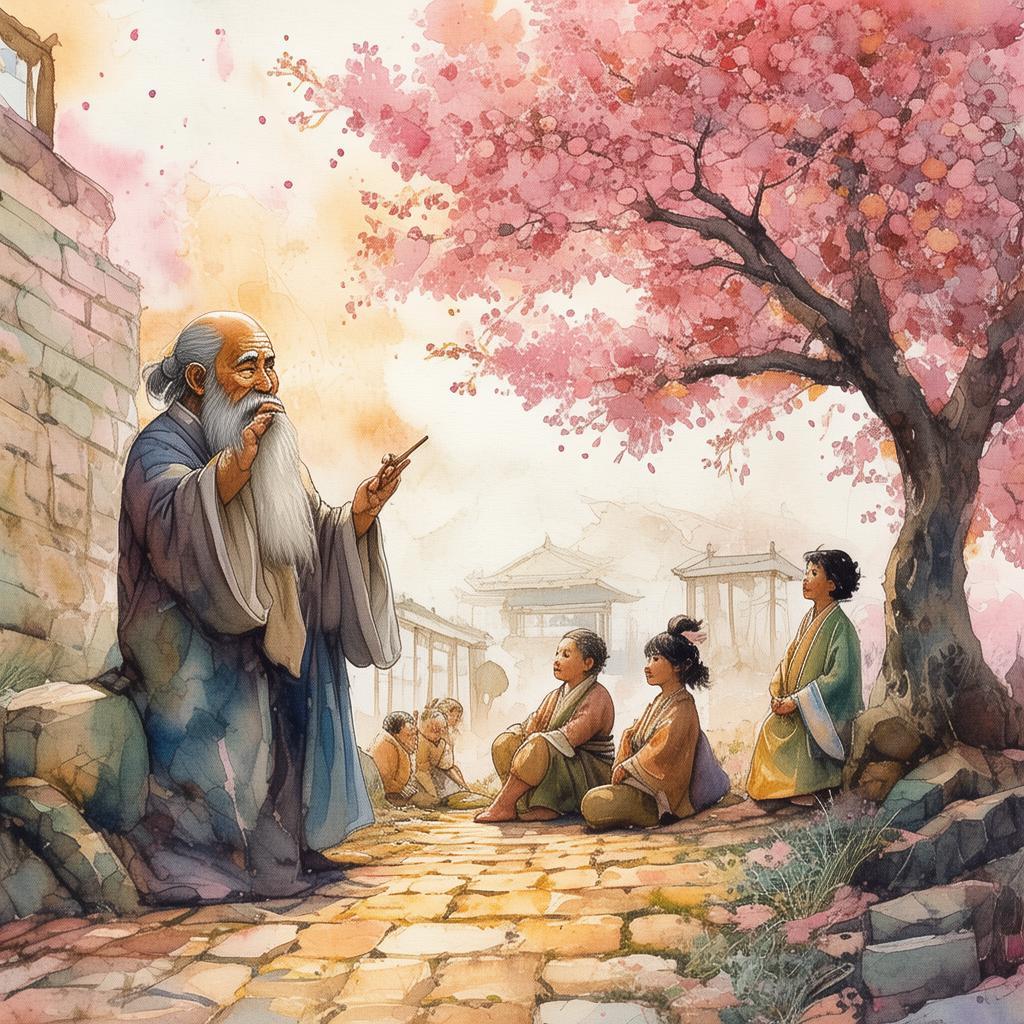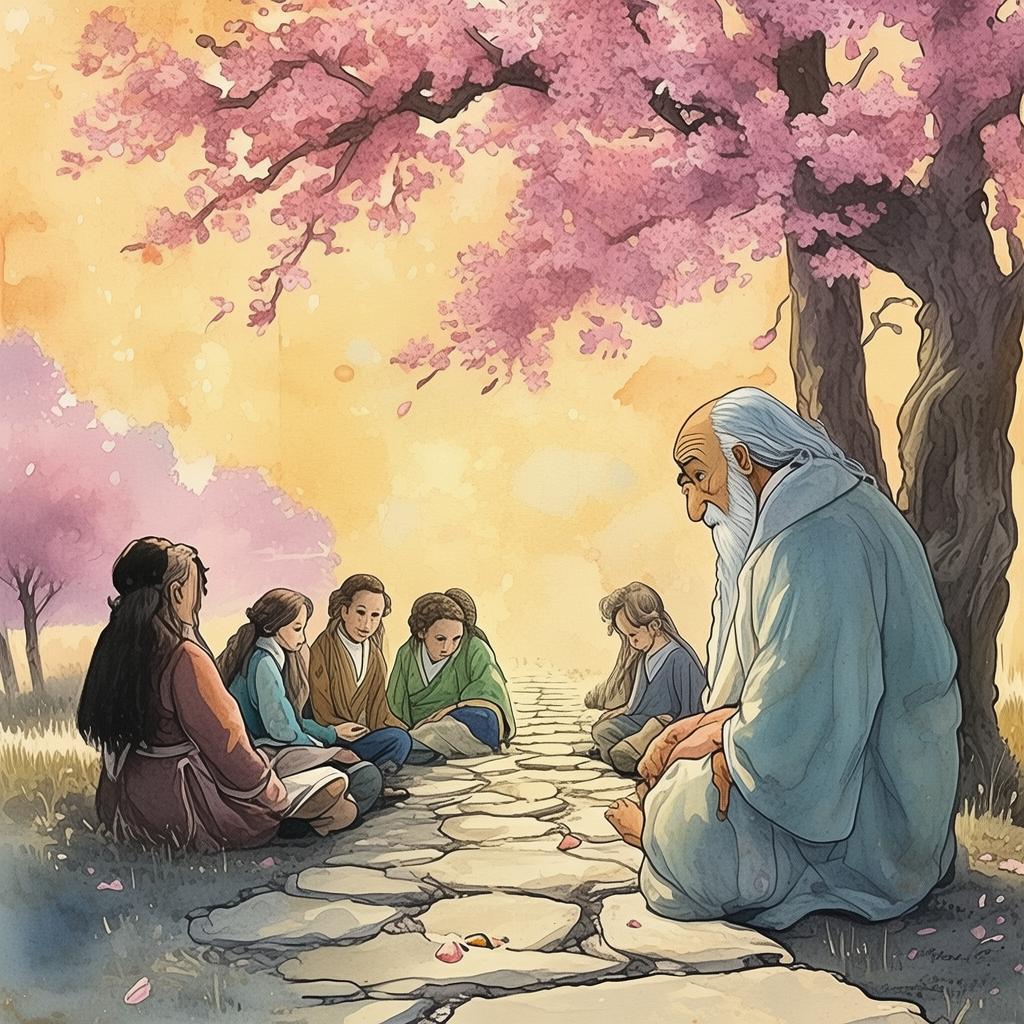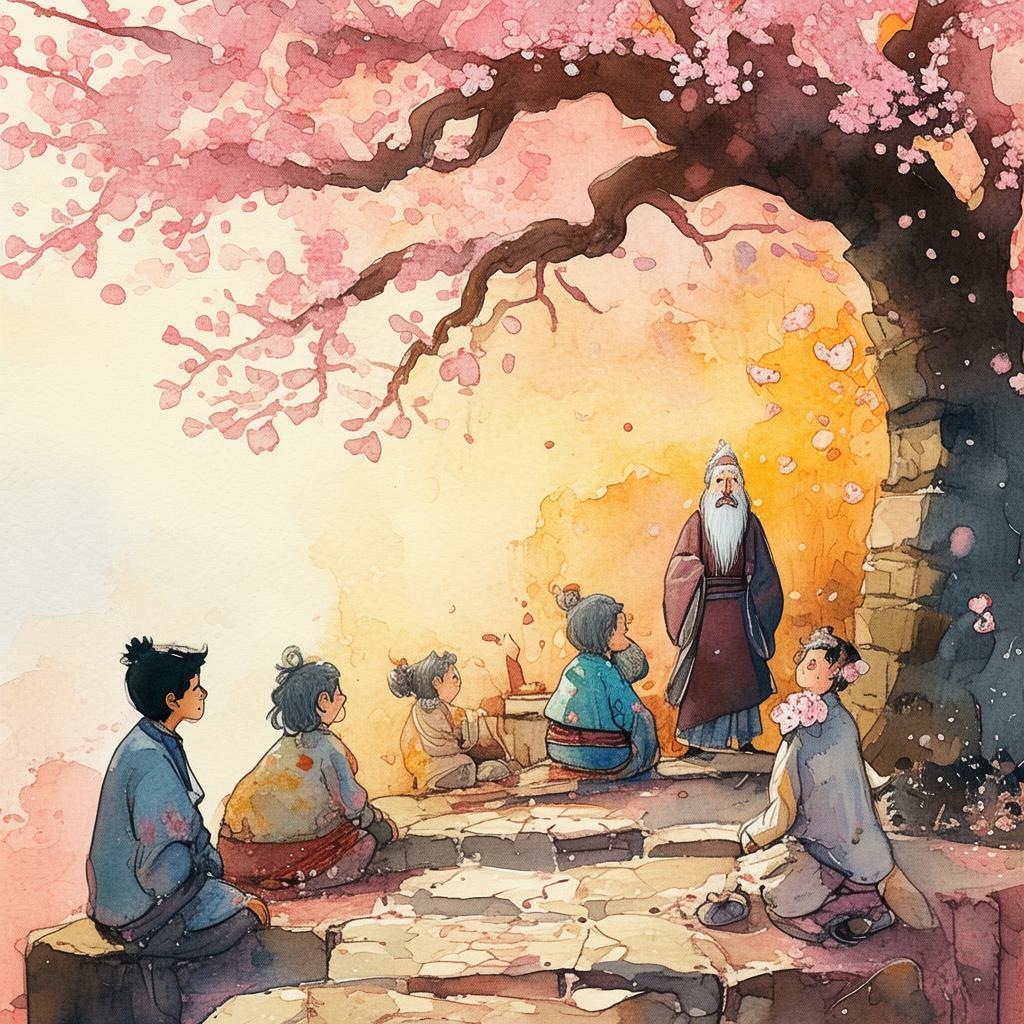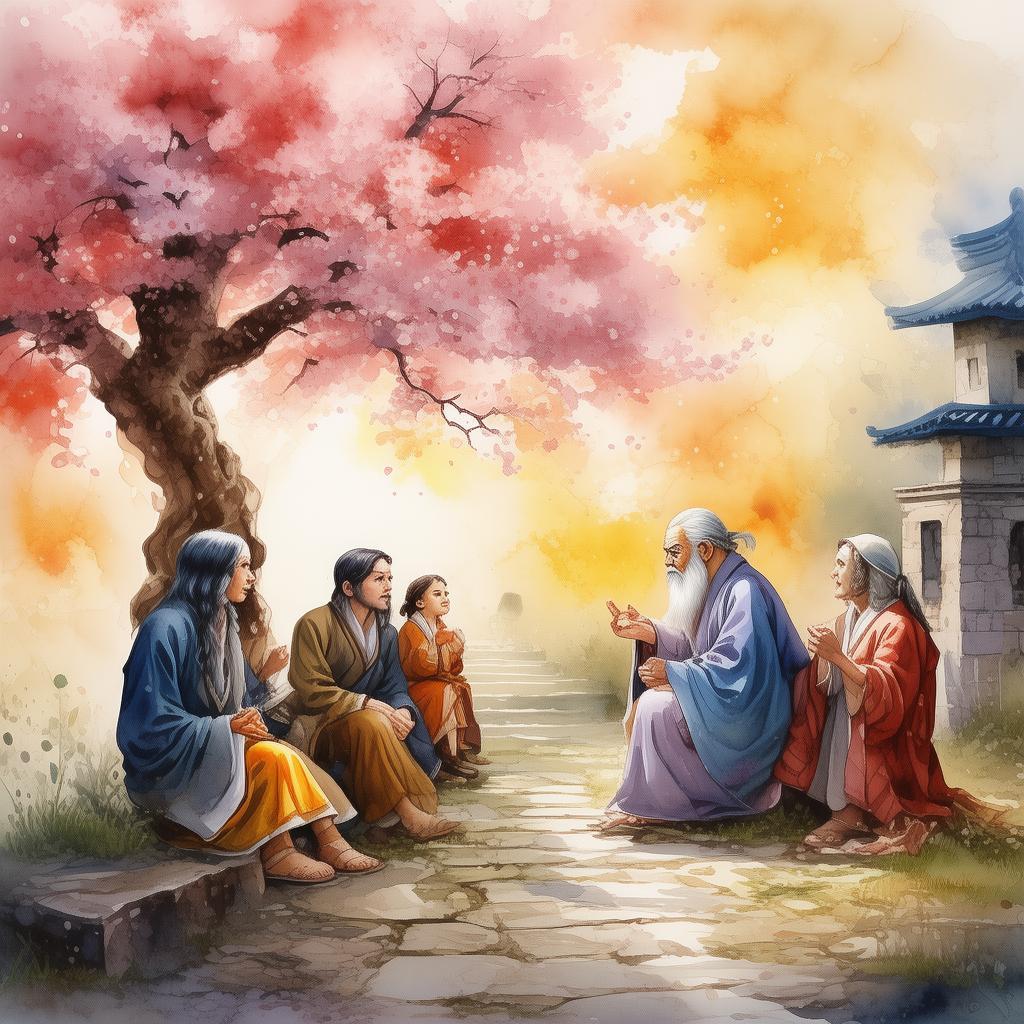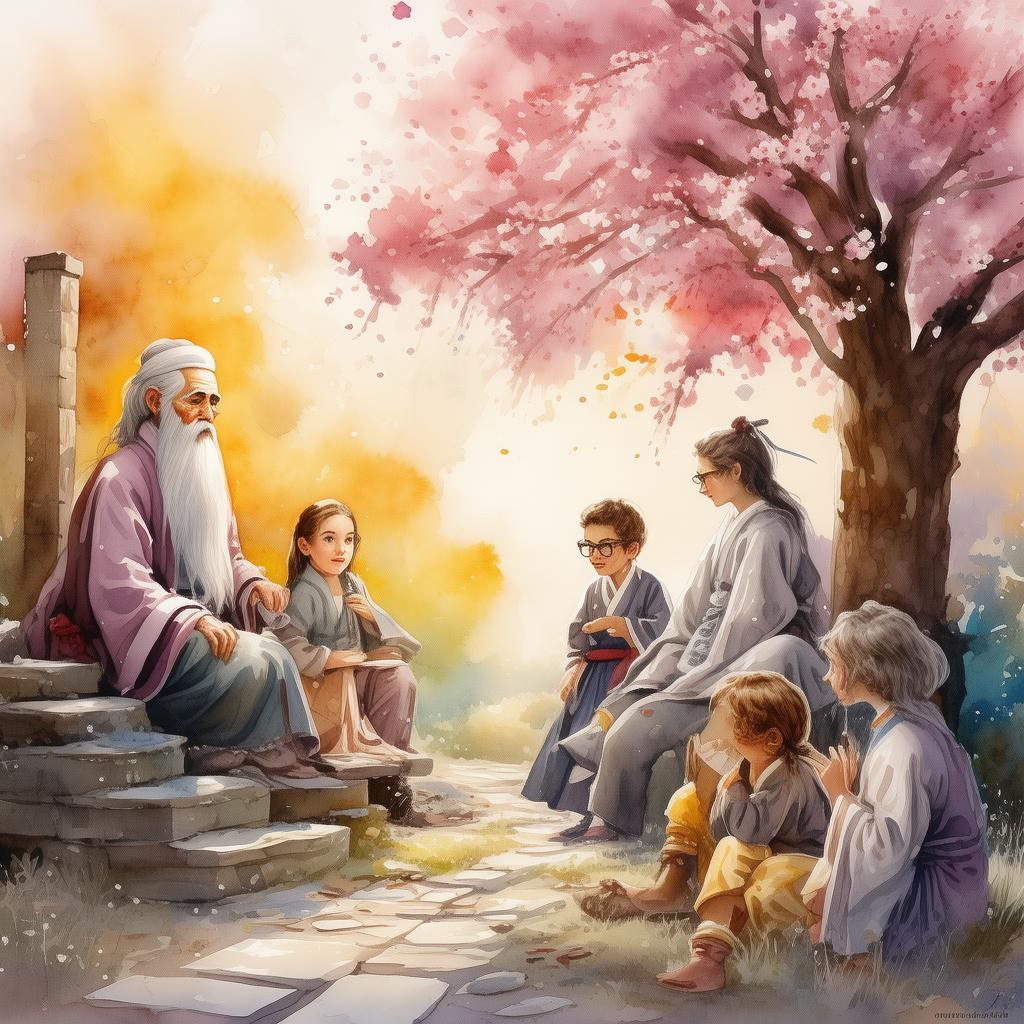The Celestial Mirror: A Tale of Two Worlds
In the bustling city of Beijing, amidst the hum of neon lights and the clatter of skyscrapers, there lived a scholar named Li Wei. He was an expert in ancient Chinese literature, particularly the "Book of Songs," an anthology of poetry from the Zhou Dynasty. Li Wei had dedicated his life to understanding the rich tapestry of emotions and moral lessons woven into the verses.
One rainy evening, as Li Wei was sorting through a collection of old scrolls in his cluttered study, he stumbled upon an ornate, ancient mirror. It was unlike any he had ever seen, with intricate patterns etched into its surface, patterns that seemed to dance with an otherworldly light. Intrigued, he picked it up and held it close to his face, expecting the usual reflection.
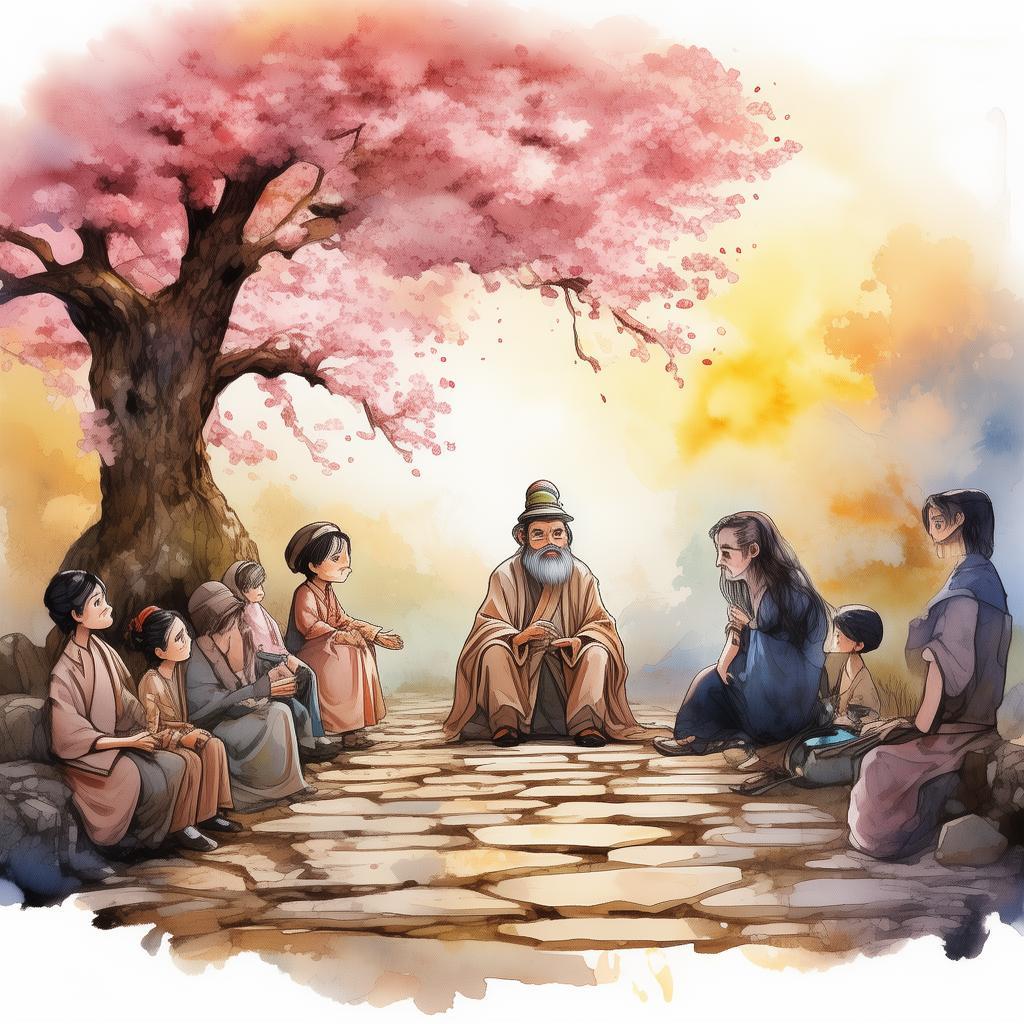
But instead of seeing himself, Li Wei was enveloped in a blinding light, and then he was no longer in his study. He found himself in a vast, starry expanse, surrounded by floating islands and shimmering constellations. The air was thick with the scent of ancient incense, and the ground was a carpet of emerald grass, untouched by time.
Li Wei looked around, his heart pounding with fear and excitement. He realized that he had been transported to a parallel universe, one that mirrored his own but was steeped in the wisdom of the ancient "Book of Songs." The stars above him were not merely points of light but were in fact the eyes of ancestors, watching over him.
As Li Wei wandered through this ethereal landscape, he encountered a wise old figure who introduced himself as the Keeper of the Celestial Mirror. The Keeper explained that Li Wei's journey was to understand the true meaning of the "Book of Songs" and to apply its wisdom to his own life.
The Keeper spoke of the first line of the "Book of Songs": "The willows by the river weep, for the water flows so swiftly." Li Wei was shown a river that flowed backward, defying the natural order. The Keeper explained that this represented the human condition, where the past and present intertwine, and where one must learn to embrace change.
The next day, Li Wei found himself in a village where the villagers lived in harmony, their every action imbued with meaning. The Keeper took him to a wise woman who could see into the hearts of others. She spoke to Li Wei about the line, "The willows weep not for the water, but for the wind that carries them away." This, she said, was about the importance of letting go of the past and allowing the wind of fate to carry one's life forward.
Li Wei began to understand that the "Book of Songs" was not just a collection of poetry but a guidebook for living, teaching the balance between embracing one's destiny and shaping one's future. The Keeper tasked him with finding a hidden temple, where the true power of the Celestial Mirror lay.
With the help of the villagers, Li Wei found the temple, and as he entered, he was confronted by his own shadow, embodying the darkest parts of his character. The Keeper guided him through a meditation, helping him to confront and overcome his fears and regrets. When Li Wei emerged from the temple, his shadow had vanished, and he felt lighter, unburdened.
Returning to his own world, Li Wei felt transformed. He applied the lessons he had learned to his life, finding peace in the face of adversity and understanding that his destiny was not fixed but shaped by his own choices. He wrote a book, combining the wisdom of the "Book of Songs" with the experiences of his parallel universe journey, which quickly became a bestseller.
Li Wei realized that the Celestial Mirror was a mirror to his own soul, reflecting both the light and the shadows within him. It was a constant reminder that the wisdom of the ancients could still guide us through the complexities of the modern world.
The tale of Li Wei spread far and wide, inspiring people to seek the balance between embracing their past and shaping their future. The Celestial Mirror became a symbol of hope and a reminder that the true power of wisdom lies not in the knowledge itself, but in the application of that knowledge to one's life.
✨ Original Statement ✨
All articles published on this website (including but not limited to text, images, videos, and other content) are original or authorized for reposting and are protected by relevant laws. Without the explicit written permission of this website, no individual or organization may copy, modify, repost, or use the content for commercial purposes.
If you need to quote or cooperate, please contact this site for authorization. We reserve the right to pursue legal responsibility for any unauthorized use.
Hereby declared.
